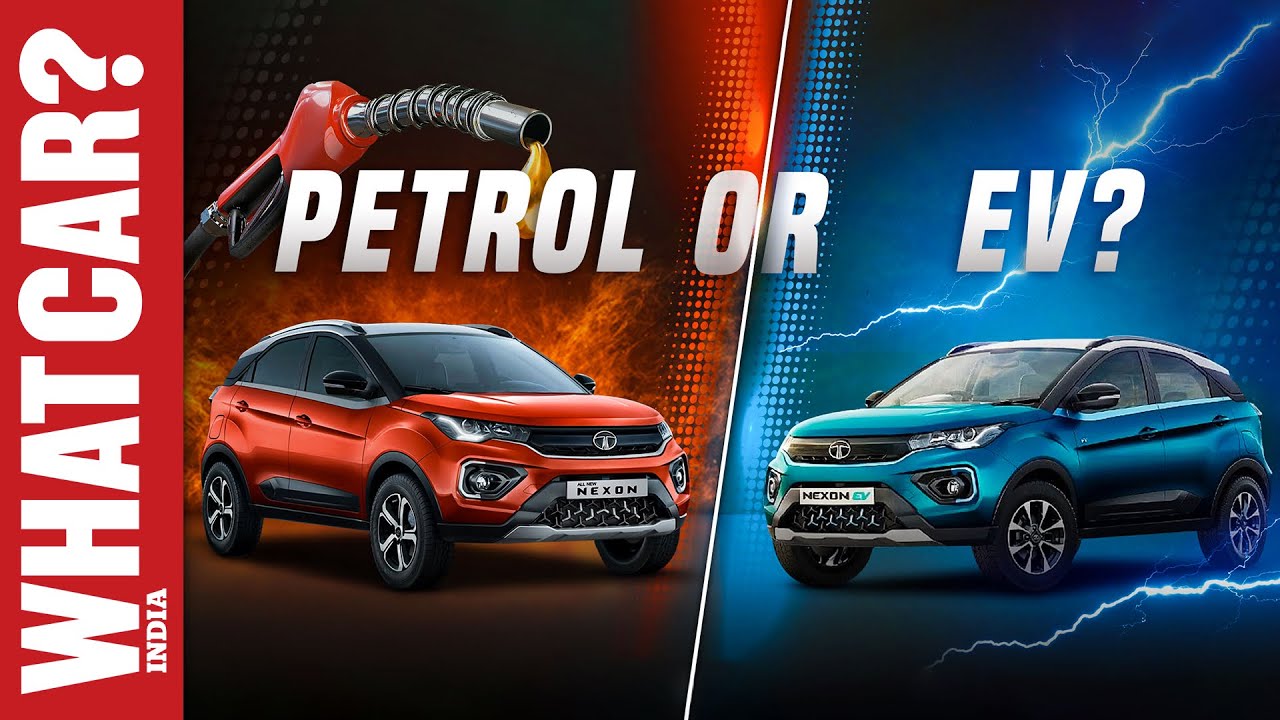In recent years, the Indian automotive market has witnessed a surge in the popularity of electric vehicles, with a staggering 1.53 million EV sales in 2023 alone. As more and more consumers consider making the switch from traditional petrol cars to electric alternatives, a common dilemma arises: should one opt for an electric car, stick with a petrol-powered vehicle, or find a middle ground with a hybrid? This question of electric cars vs petrol cars is on the minds of many potential car buyers in India.
what is deference between them?

1. Environmental Impact
Petrol Cars: Traditional internal combustion engine (ICE) vehicles run on fossil fuels, emitting carbon dioxide (CO2) and other pollutants. These emissions contribute significantly to climate change and air pollution, making petrol cars less environmentally friendly.
EV Cars :Electric vehicles produce zero tailpipe emissions, reducing air pollution drastically. However, their overall environmental impact depends on how the electricity used to charge them is generated. If the electricity comes from renewable sources, EVs are much cleaner. On the downside, battery production can have a high environmental cost due to mining of raw materials like lithium and cobalt.
conclusion: EVs are the greener option, especially as renewable energy adoption increases.
2. Cost Analysis
Purchase Cost: EVs often have a higher upfront cost compared to petrol cars. However, government subsidies, tax benefits, and incentives in many countries are narrowing this gap.
Running Cost: EVs are significantly cheaper to operate, with lower fuel (electricity) costs and minimal maintenance requirements due to fewer moving parts. In contrast, petrol cars have higher fuel and maintenance costs.
Resale Value: The resale value of petrol cars is expected to decline as EVs gain popularity and governments impose restrictions on ICE vehicles.
conclusion: While petrol cars might seem cheaper initially, EVs win in the long run due to lower operating costs and evolving market dynamics.

3. Infrastructure and Convenience
Petrol Cars: The infrastructure for petrol cars is well-established, with fuel stations widely available and refueling taking only a few minutes.
EV Cars: Charging infrastructure is expanding rapidly but still lags behind traditional fuel stations in some regions. Charging times, while improving, can range from 30 minutes (fast charging) to several hours (home charging).
conclusion: Petrol cars currently offer greater convenience, but EV charging infrastructure is improving rapidly.
4. Performance
Petrol Cars: Petrol engines provide a visceral driving experience, especially for enthusiasts who enjoy the sound and feel of a roaring engine. They are also better suited for high-speed, long-distance travel in areas with limited charging infrastructure.
EV Cars: EVs offer instant torque, leading to superior acceleration and a smoother, quieter driving experience. They are well-suited for city driving and daily commutes.
conclusion: Petrol cars appeal to enthusiasts, but EVs provide a better overall driving experience for most users.
5. Future Trends and Regulations
Many countries and automakers are transitioning toward EVs. Governments are implementing stricter emission standards, imposing higher taxes on petrol cars, and planning to phase out ICE vehicles altogether.For instance:
-The European Union aims to ban the sale of new petrol and diesel cars by 2035.
-India plans to achieve 30% EV penetration by 2030.
-Automakers like Tesla, General Motors, and Volkswagen are heavily investing in EV development.
conclusion: EVs are the clear future, with growing support from governments and the automotive industry.
6. Challenges Facing EV Adoption
Battery Technology: Current battery technology limits the range of EVs compared to petrol cars. However, advancements in battery chemistry and solid-state batteries are expected to address this issue.
Charging Infrastructure: Rural areas and developing countries still face challenges in establishing reliable charging networks.
Initial Cost: Although prices are decreasing, EVs remain costlier upfront than petrol cars.
Despite these challenges, the EV industry is evolving rapidly, making these issues temporary.

7. Conclusion: The Better Choice for the Future
While petrol cars have served us well for over a century, their environmental impact and declining relevance due to regulatory changes make them a less viable option for the future. Electric vehicles, on the other hand, offer numerous benefits, including lower running costs, reduced emissions, and growing support from governments and automakers.
If you’re planning to invest in a car today with an eye on the future, electric vehicles are the smarter choice. They align with the global push for sustainability and will likely become the standard mode of transportation in the coming decades.
Q&A…..
1. Are EVs really cheaper in the long run?
Yes, EVs save money on fuel and maintenance costs compared to petrol cars. Over time, this offsets the higher initial purchase price.
2. Can I drive an EV for long distances?
Yes, many modern EVs offer ranges of over 400 km per charge. With increasing charging stations and fast chargers, long-distance travel is becoming easier.
3. What happens to petrol cars in the future?
Petrol cars may become less common due to stricter regulations and declining demand. However, they might still exist as niche vehicles for enthusiasts or in regions with limited EV infrastructure.
If you’re considering switching to an EV or sticking with a petrol car, weigh the pros and cons based on your location, driving habits, and budget. The automotive industry is rapidly evolving, and choosing an EV could be your way of contributing to a cleaner and more sustainable future.

